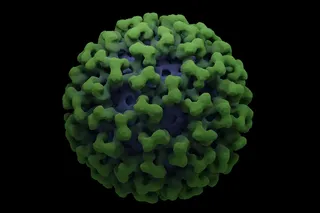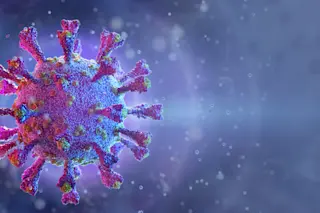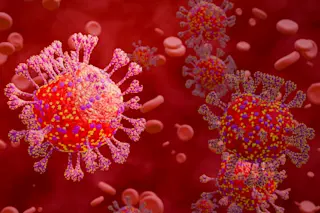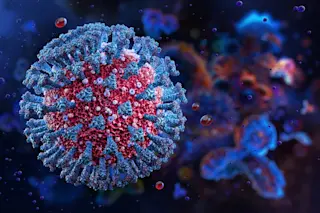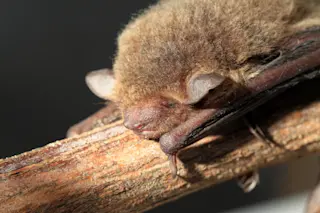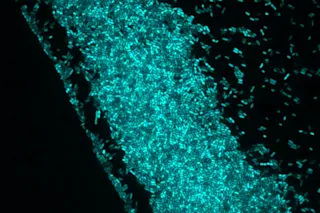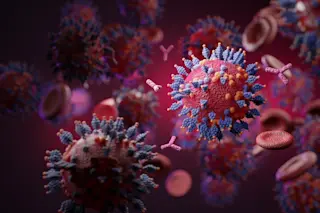At the moment there's no vaccine for malaria. The best prevention remains bed nets and prophylactic anti-malarial drugs. But a lasting prevention, in the form of a vaccine, would be infinitely better. To that end, researchers in Maryland have come up with the first intravenous vaccine for the disease and early clinical trials show it can prevent malaria in 80 percent of human patients. Malaria is caused by a parasite called Plasmodium falciparum. When an infected mosquito bites a human, it injects immature parasites called sporozoites into the bloodstream. These cells circulate to the liver where they mature into full-fledged Plasmodium falciparum. From there the dangers of the disease begin to emerge.
Researchers have previously figured out how to expose the sporozoites to radiation that halts their ability to mature without actually killing them. Because these cells can never actually cause malaria, they would theoretically work as a vaccine. Exposed ...


